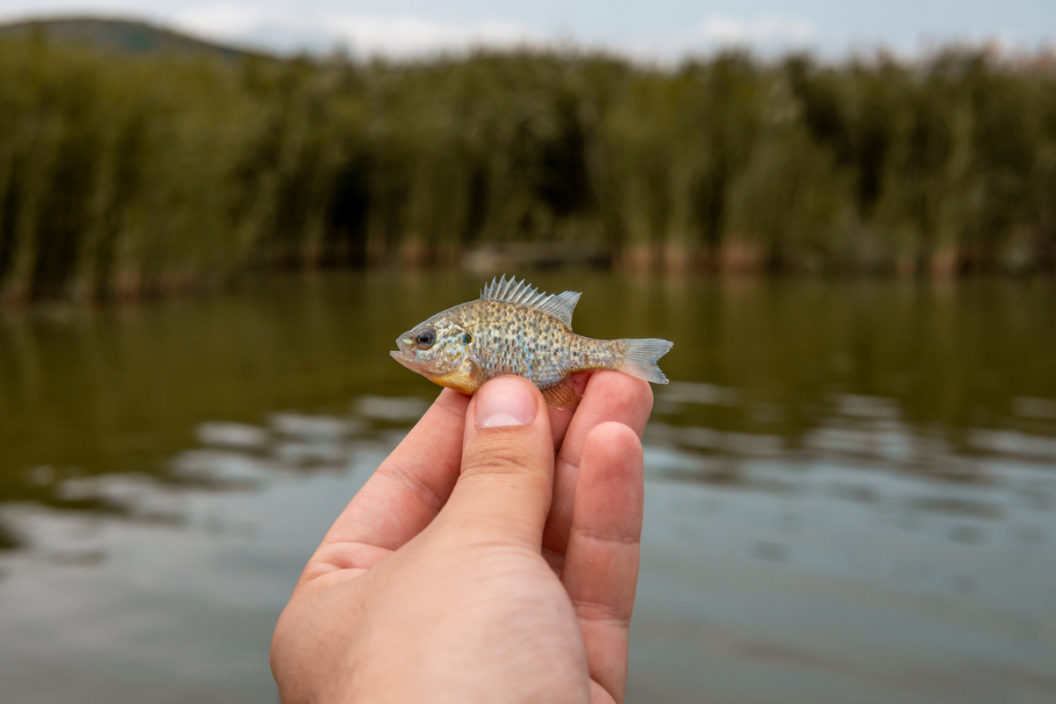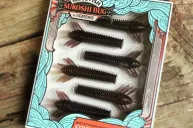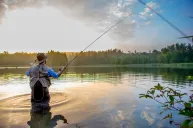What's the big deal with tiny fish and tiny fishing tackle? Micro fishing is pushing its way into the mainstream, and this tiny technique shouldn't be overlooked. The term micro fishing is pretty self explanatory, yet is often misunderstood by the average angler. Normally when fishing, anglers target the bigger subjects of a fish species. After all, we love to brag about the biggest bass, the fattest crappie, and the longest trout. We take pictures with record-sized fish, and complain to anyone who will listen about that huge one that got away. But for micro fishers, size isn't everything. Take a plunge into the odd world of targeting the smallest catch.
Origins of Micro Fishing

It seems like Americans are always concentrating on the biggest and best of anything, so it isn't hard to believe that micro fishing idea didn't originate in the United States. The oldest forms of micro fishing are believed to have originated in Japan centuries ago. The most notable early form is referred to as Tanago in reference to the small-statured species of fish inhabiting Japanese waters. Translated, tanago means 'fishes on palm'—an appropriate name considering the size of the catches we're dealing with here.
As the years progressed Tanago fishing gained more popularity, and Japanese fishermen started adapting micro fishing techniques to other small local fish species. Specialized fishing tackle also became available with ultralight fishing line, micro-hooks, and very small diameter rods. Micro fishing in Japan made fishing accessible to a whole crowd of people who never had the opportunity and made some of the smallest, most unappealing water attractive to fishermen.
In the last couple of decades, the micro fishing trend has made its way to the United States. The U.S. has plenty of fish species that could be targeted in the micro fishing realm along with juvenile subjects of other species. And like in Japan, micro fishing is increasing fishing opportunities in the United States among those who might not be as inclined or able to fish for the more popular species.
Micro Fishing Tackle
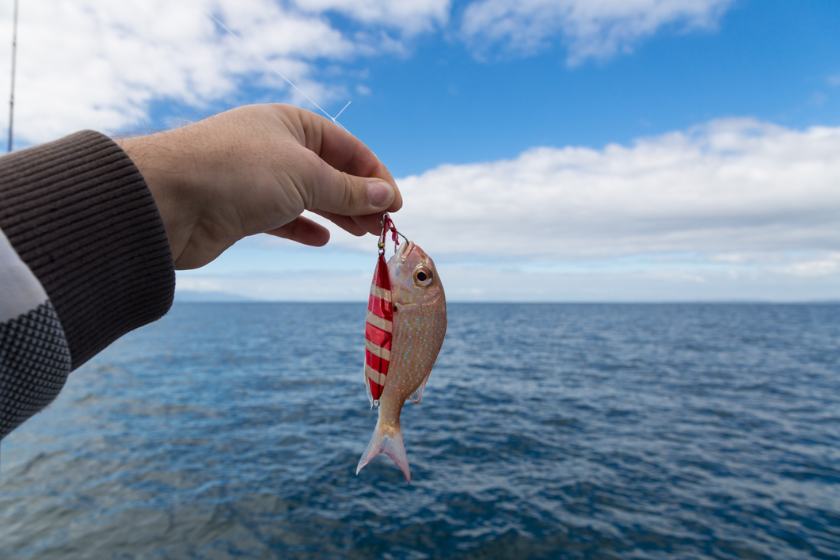
MicroFishing.com is a great resource for an aspiring micro fisherman as well as those just curious about the sport. The website has a great blog with micro fishing stories and how-to content, but what is most helpful is the breakdown of specialized micro fishing tackle.
Hooks: A size 14 hook or smaller is used when fishing for micro-fish species, all the way down to a size 20 or 30 hook at times. Long shank hooks are best. You obviously need a hook that is well-suited to land a tiny-mouthed fish while avoiding any damage to their delicate makeup.
Line: Look for a high quality, small diameter tippit in the fly fishing section. If that's unavailable, ice fishing line could suffice. Fish can become finicky when they see the line and don't respond well to large diameter line, especially in clear water.
Rods: For the most basic setup, a light action 10 to 12 foot crappie rod can be used. Micro fishing is often done by sight so it is recommended that a longer rod be employed to stay out of the fish's line of sight.
Bait: When selecting bait for micro fishing you have to consider the natural diet of the fish you are pursuing. Most small fish target worms, grubs, bugs, and larvae. When it comes to popular bait options, worms are high on the list. Maggots, blood worms, and gluten (a powder mixed with water to form a paste) are also recommended. Just make sure you are separating your bait out into small, edible pieces before putting it on the hook.
Evolution and Portrayal
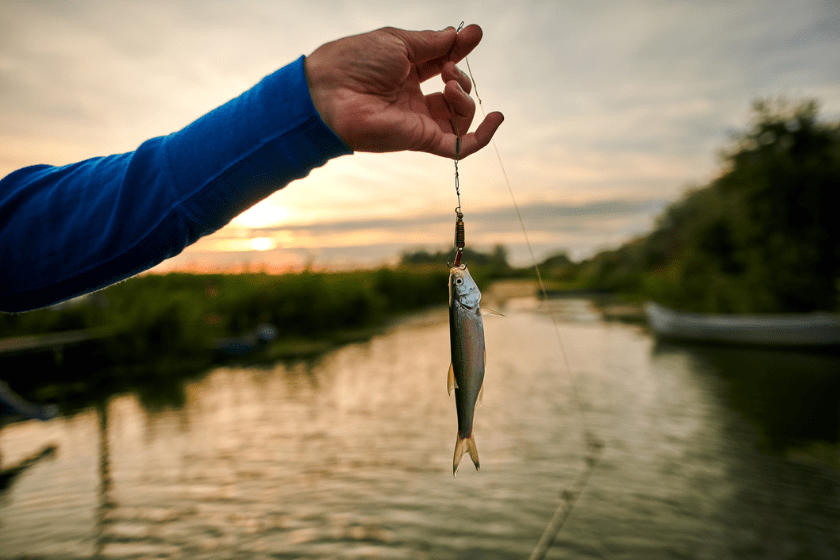
Micro fishing looks quite a bit different than it did centuries ago. We've come a long way from strands of hair being attached to the end of a long stick to try and entice tiny fish. Specialized micro fishing tackle is still not easy to find but other commonly used tackle makes a great substitute. We'll just have to wait and see where this micro fishing trend goes in the coming years, as it becomes more popular on social media and Youtube, online places where communities like these can gather. It will hopefully inspire more people to get out and and to try something new, if nothing else.
